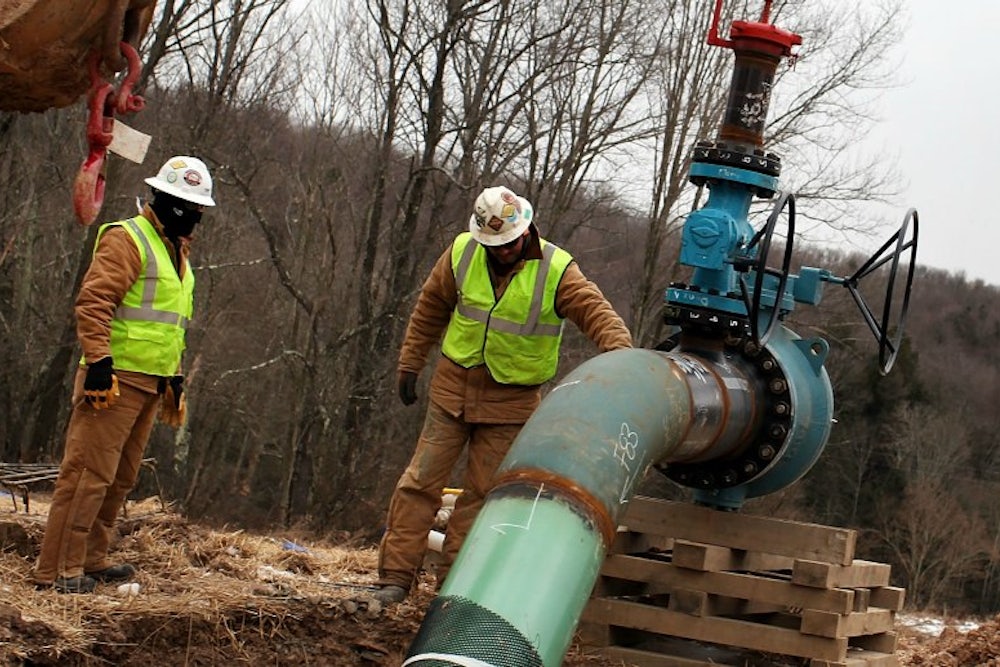The Environmental Protection Agency released a highly anticipated draft report on Thursday about the impact of hydraulic fracturing on drinking water. Environmentalists have long charged that fracking contaminated water because the process involves injecting a chemical slurry deep underground to draw oil and gas, then using injection wells to dispose of the wastewater.
The top-line from the study, which will head to an independent advisory board for review and be available for public comment, reads:
We did not find evidence that these mechanisms have led to widespread, systemic impacts on drinking water resources in the United States.... [W]e found specific instances where one or more mechanisms led to impacts on drinking water resources, including contamination of drinking water wells. The number of identified cases, however, was small compared to the number of hydraulically fractured wells.
That left enough room for both environmentalists and industry groups to act triumphantly.
“The EPA's water quality study confirms what millions of Americans already know—that dirty oil and gas fracking contaminates drinking water,” Sierra Club’s executive director Michael Brune said in a statement. “Unfortunately, the EPA chose to leave many critical questions unanswered. For example, the study did not look at this issue under the lens of public health and ignored numerous threats that fracking poses to drinking water. The EPA must conduct a comprehensive study that results in action to protect public health.”
“After more than five years and millions of dollars, the evidence gathered by EPA confirms what the agency has already acknowledged and what the oil and gas industry has known,” said American Petroleum Institute Upstream Group Director Erik Milito. “Hydraulic fracturing is being done safely under the strong environmental stewardship of state regulators and industry best practices.”
On a call with reporters, the EPA insisted the study, which relied largely on data volunteered by the industry, did not attempt to deliver a verdict on the “question of safe or unsafe.” The purpose was to highlight the vulnerabilities in the water system, which drillers and regulators can address by improving construction of the wells and oversight.
The study certainly supports industry claims that fracking’s benefits outweigh its risks, but calling this a win for the industry would be misleading. Moreover, the oil and gas industry and its allies have long claimed—contra this EPA study—that there's no proof of any impact whatsoever on drinking water. “U.S. government studies have shown no evidence of drinking water contamination from hydraulic fracturing,” API has said. Republican Senator James Inhofe insisted there’s “never been one case — documented case — of groundwater contamination in the history of the thousands and thousands of hydraulic fracturing.” Even former EPA head Lisa Jackson said in 2011, “I’m not aware of any proven case where the fracking process itself has affected water although there are investigations ongoing.”
